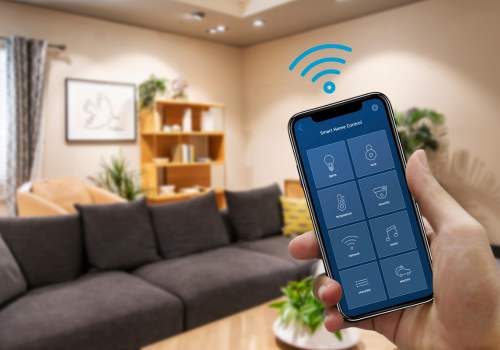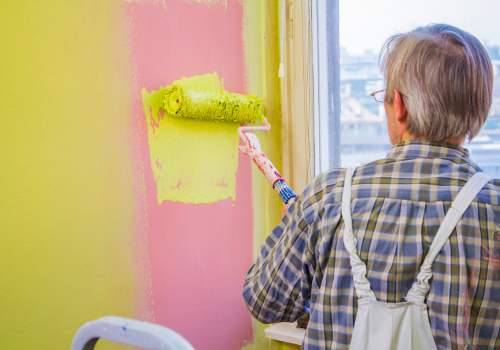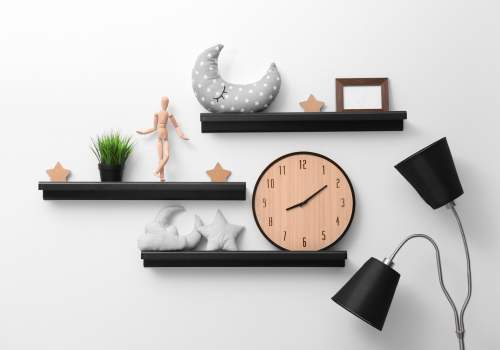12 Innocent Things You’re Doing That Violate Your Lease
You might think you’re a model tenant, but there’s a good chance you’re breaking your lease agreement right now without even knowing it.
From seemingly harmless actions like swapping out your door locks to modern conveniences such as installing smart thermostats, these everyday decisions could put your rental status at risk.
What’s more surprising is that some of your well-intentioned home improvements and lifestyle choices might be direct violations of your contract.
Before you hang that new family portrait or start your side hustle from your living room.
You’ll want to discover if you’re accidentally crossing any lines that could jeopardize your security deposit or worse—lead to eviction.

Changing Locks Without Permission
Changing locks without your landlord’s permission constitutes a serious lease violation in most rental agreements.
While you have the right to feel secure in your home, modifying locks independently can result in eviction proceedings and loss of your security deposit.
You’ll violate your lease even if you provide your landlord with new keys after changing the locks.
The property owner must maintain access for emergencies, maintenance, and property inspections.
If you’re concerned about security, request a lock change through proper channels.
Your lease likely specifies that only the landlord or authorized locksmith can modify locks.
If you’re worried about unauthorized access, document your concerns in writing and request a lock change.
Your landlord must address legitimate security concerns while maintaining their legal right to property access.
Installing Smart Home Devices

Three key considerations arise when installing smart home devices in a rental property.
First, your lease may explicitly prohibit modifications to existing wiring, doorbell systems, or thermostat controls without written permission.
Second, you’ll need to determine whether the installation requires drilling holes or permanent alterations, which could violate clauses about property damage.
Third, smart devices that integrate with door locks or security systems might conflict with your landlord’s access rights and emergency entry protocols.
Before mounting that Ring doorbell or Nest thermostat, review your lease carefully and consult your landlord.
You’ll need to address how these devices affect property management, whether they’ll be removed when you move out, and who retains data ownership.
Running a Home Business
Most residential leases contain restrictions on operating businesses from your rental unit, presenting multiple legal and practical challenges.
Your lease likely prohibits using the property for commercial purposes, which includes running an online store, consulting business, or teaching classes from home.
Even remote work for an employer could violate these terms if clients regularly visit your unit.
You’ll risk eviction by conducting business activities that increase utility usage, create excessive foot traffic, or require business licenses.
Common violations include operating a daycare, running a home salon, or storing inventory for e-commerce.
Many landlords object to home businesses due to liability concerns, increased wear on the property, and potential zoning violations.
Before starting any home-based venture, carefully review your lease terms and consider requesting written permission from your landlord.
Extended Guest Stays

Residential leases typically set strict limits on how long guests can stay in your rental unit without landlord approval.
Most leases specify that guests can’t stay longer than 7-14 consecutive days or more than 30 days total within a 12-month period.
Having someone stay beyond these limits technically makes them an unauthorized occupant.
You’re violating your lease if your boyfriend moves in without being added to the rental agreement, if your friend crashes on your couch for several weeks, or if your relative’s “short visit” turns into a month-long stay.
Even if your guest isn’t causing problems, exceeding stay limits gives your landlord grounds for eviction.
To avoid issues, either get written permission from your landlord or guarantee your guests respect the time restrictions outlined in your lease.
Unreported Maintenance Issues
Tenants who fail to report maintenance problems can face serious consequences under their lease terms.
You’re legally obligated to notify your landlord about issues like leaky faucets, malfunctioning appliances, or structural damage – even if you think they’re minor.
What starts as a small problem can quickly escalate into major damage that you’ll be financially liable for.
Your lease likely includes specific language requiring prompt reporting of maintenance issues.
If you don’t report that dripping pipe and it later bursts, causing water damage, you could be responsible for repair costs that your landlord would’ve covered initially.
To protect yourself, document all maintenance requests in writing, take photos, and keep copies of all communications.
This creates a paper trail proving you’ve fulfilled your lease obligations.
Repainting Walls

In accordance with standard lease agreements, painting walls without your landlord’s written permission typically constitutes a lease violation.
Even if you’re planning to use neutral colors or believe you’re improving the space, unauthorized painting can result in penalties or loss of your security deposit.
You might think it’s your right to customize your living space, but most leases require you to return the unit to its original condition.
If you’ve painted without permission, you’ll likely need to restore the walls to their previous color before moving out.
Professional repainting costs can be substantial, and landlords may charge additional fees for unauthorized modifications.
To protect yourself, always submit a written request before painting.
Some landlords will approve color changes if you agree to repaint before vacating or hire a professional painter they trust.
Using Forbidden Appliances
Many lease agreements explicitly prohibit specific appliances due to safety concerns, power consumption limits, or building code restrictions.
You mightn’t realize that using unauthorized appliances like portable dishwashers, extra refrigerators, or high-powered air conditioning units can breach your rental agreement.
Even seemingly harmless items like space heaters, washing machines, or window AC units often require landlord approval.
These restrictions stem from outdated electrical systems that can’t handle additional load, potential water damage risks, or insurance requirements.
You’ll need to carefully review your lease’s appliance clause and obtain written permission before installing any new equipment.
If you’re caught using forbidden appliances, you could face lease termination, lose your security deposit, or become liable for any resulting damages.
When in doubt, always consult your property manager first.
Smoking on the Property

Most modern lease agreements include strict provisions against smoking both inside rental units and throughout the property.
You’re violating your lease if you smoke cigarettes, cigars, or marijuana – even in outdoor areas like balconies, patios, or parking lots.
This includes vaping and e-cigarettes, which many landlords now specifically prohibit.
Even if you’re in a state where marijuana is legal, your landlord can still ban its use on the property.
The smoke and residue from any type of smoking can damage walls, carpets, and fixtures, leading to expensive cleaning costs and potential loss of your security deposit.
You’re also responsible if your guests smoke on the property. Breaking these rules can result in lease termination, fines, or eviction proceedings.
Subletting Through Airbnb
Renting out your apartment on Airbnb or similar short-term rental platforms without your landlord’s explicit permission violates nearly all residential lease agreements.
This practice, known as unauthorized subletting, can result in immediate lease termination and potential legal consequences.
Your lease likely contains specific clauses prohibiting short-term rentals, as they create security risks, liability issues, and property insurance complications.
Even if you’re only renting out a spare room while you’re present, you’re still breaking your contractual obligations.
Don’t assume your landlord won’t find out. Many building managers actively monitor rental platforms, and neighbors often report suspicious guest activity.
If you’re interested in hosting on Airbnb, you’ll need to either negotiate this right with your landlord or find a rental property that explicitly permits short-term rentals.
Hanging Wall Decorations

Tenants frequently damage their rental units when hanging artwork, mirrors, and shelves without following proper lease guidelines.
Most residential leases restrict how you can mount items to walls, and some completely prohibit making holes.
You’ll need to carefully review your lease’s specific terms about wall modifications.
Even small nail holes can violate your lease and result in security deposit deductions.
If you’re determined to hang items, you should first get written permission from your landlord.
Consider using damage-free hanging solutions like Command strips or picture-hanging strips that won’t leave marks.
If your lease allows holes, use appropriate anchors for your wall type, and document the walls’ pre-existing condition with photos.
Remember that you’re responsible for returning walls to their original condition when moving out, including patching holes and matching paint.
Feeding Stray Animals
While wall decorations can impact your rental unit’s interior, feeding stray animals outside your property can create significant lease violations and legal issues.
Most lease agreements specifically prohibit tenants from feeding or harboring stray animals due to liability concerns and property damage risks.
When you feed strays, you’re fundamentally encouraging them to return regularly, which can lead to several problems: damage to landscaping, unwanted breeding colonies, noise complaints from neighbors, and potential health hazards from animal waste.
You’re also increasing the landlord’s liability risk if these animals harm other tenants or their pets.
Even if your lease doesn’t explicitly mention feeding strays, many municipalities have ordinances against it.
You could face both eviction proceedings and local fines for continuing this practice, regardless of your good intentions.
Growing Plants on Balconies

Many renters wonder about their rights to grow plants on balconies, but this seemingly harmless activity can violate lease terms if not properly managed.
Your lease likely contains specific restrictions about balcony use, including limitations on plant containers, water drainage, and structural weight limits.
You’ll need to check if your lease prohibits hanging planters, requires drainage trays, or limits the size of pots.
Even if plants aren’t explicitly mentioned, most leases include clauses about maintaining the property’s appearance and preventing water damage.
To avoid violations, verify your plants don’t damage railings, walls, or floors.
Don’t let water drip onto lower balconies, and keep vegetation from extending beyond your designated space.
If you’re unsure about your gardening rights, request written permission from your landlord before starting your balcony garden.
FAQs
Can I Change My Doorbell to a Wireless One Without Landlord Approval?
You shouldn’t install a wireless doorbell without landlord approval, as it involves modifying the property. While it’s removable, most leases require consent for any alterations, even minor ones, to avoid potential lease violations.
Do I Need Permission to Install Temporary Window Film for Privacy?
You should check your lease’s modification terms, but removable privacy film typically doesn’t require landlord approval since it’s temporary and non-damaging. Just guarantee you can fully remove it when you move out.
Is Using a Portable Washing Machine Allowed if Laundry Facilities Exist?
Like a sneaky shortcut around the rules, you’ll probably need landlord approval. Most leases restrict additional appliances, even portable ones, when facilities exist – they’re concerned about water damage and utility costs.
Can My Landlord Restrict the Use of Essential Oil Diffusers?
You’re likely allowed to use essential oil diffusers unless your lease specifically prohibits them. However, if they’re causing damage or disturbing neighbors, your landlord can restrict their use under general nuisance clauses.
Are Battery-Operated Security Cameras Considered Lease Violations in Common Areas?
Better safe than sorry, but you’ll need explicit permission before installing security cameras in common areas. Most leases prohibit modifications or surveillance of shared spaces without landlord approval, even for battery-operated devices.
Final Thoughts
Protect your position as a prudent tenant by properly parsing your lease’s particulars.
You’re responsible for reviewing and respecting rental regulations, from lock changes to living space modifications.
Don’t let seemingly simple decisions derail your housing stability or drain your deposit.
Stay secure by scanning your contract carefully and consulting your landlord before making changes.
Your awareness and adherence to agreements today prevents problems tomorrow.